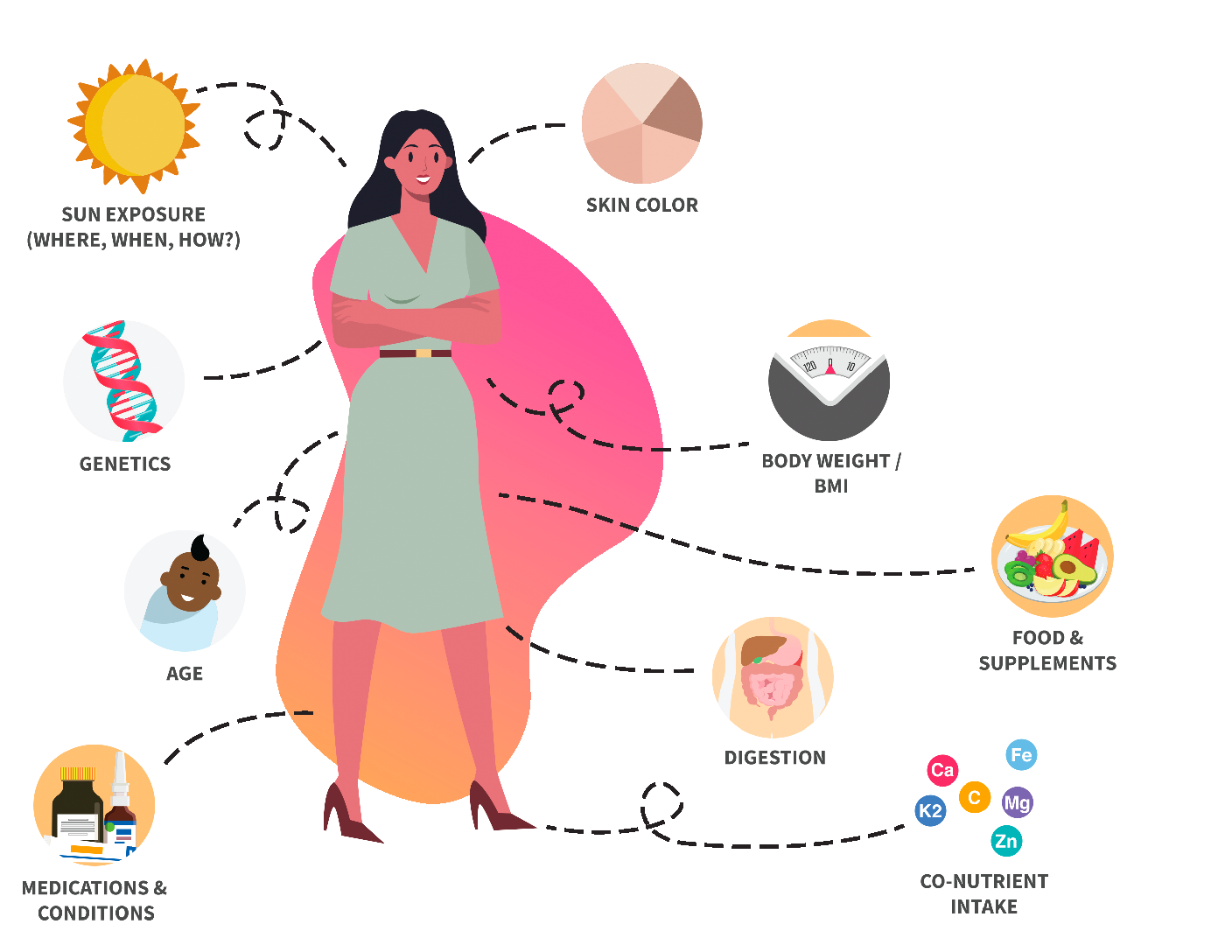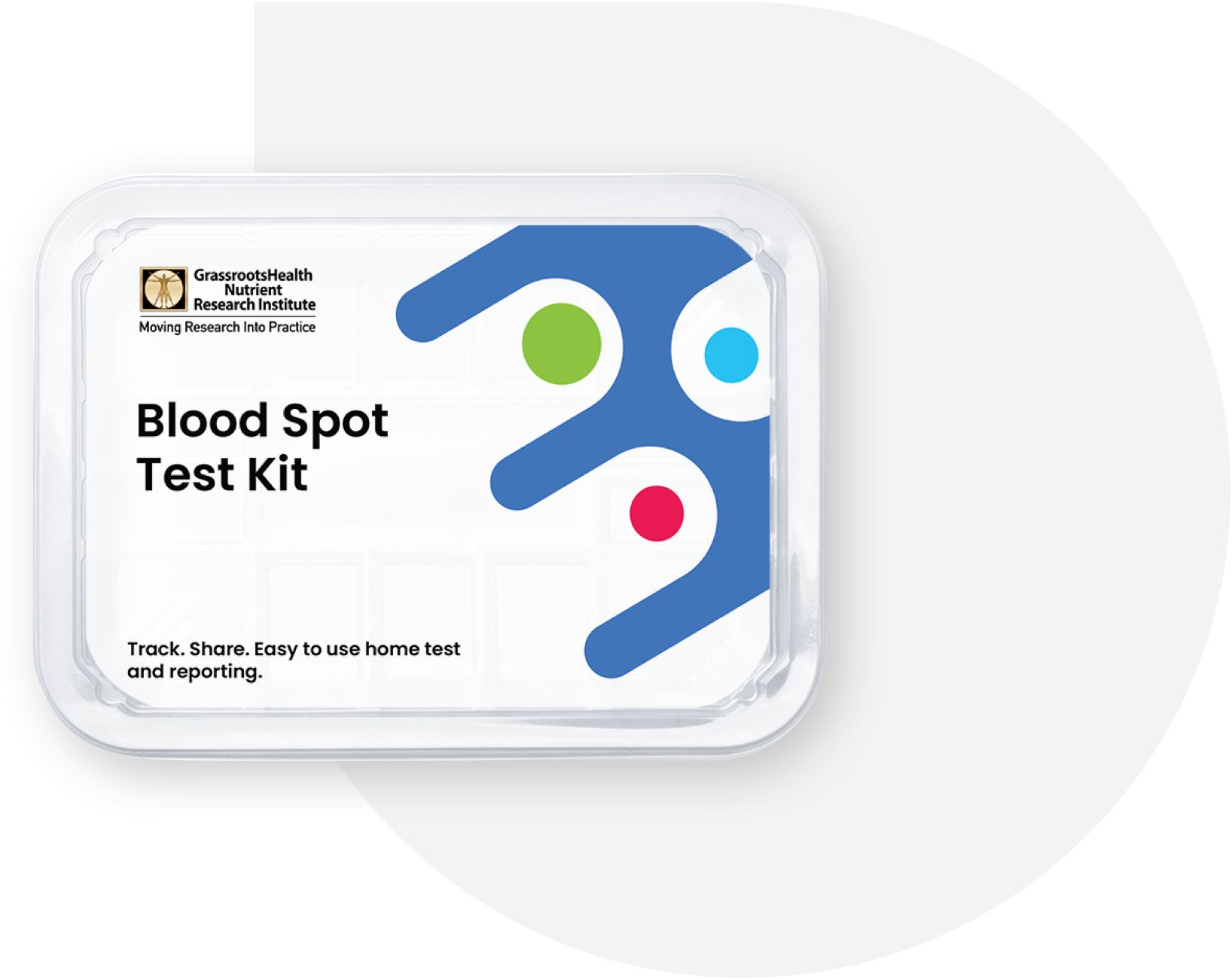What is Your Risk of Having a Low Vitamin D Level?
Almost 90% of adults and more than 90% of children in the United States are below a vitamin D level of 40-60 ng/ml (100-150 nmol/L).
Take our Vitamin D Deficiency Risk Assessment Quiz to see if you’re at risk.
Take the Free Quiz


Vitamin D
Vitamin D (the “Sunshine Vitamin”), which is both a nutrient and a hormone, is needed by virtually every cell in the body and is essential for hundreds of processes each and every day. It acts as a regulator of all cell types, tissues, and organs, and enhances the functioning of each system of the body to help keep us healthy.
Why do we need vitamin D?
Every tissue in our bodies needs vitamin D and may be impaired if we do not get enough. In its most extreme forms, vitamin D deficiency results in rickets in children and osteomalacia (bone softening) in adults. Milder degrees of deficiency are being studied as risk factors of a vast array of chronic diseases, including osteoporosis, impaired cognitive and immune function, various autoimmune diseases (such as diabetes and multiple sclerosis), several cancers (such as breast, colon, lung, lymphoma, and prostate), high blood pressure, pregnancy complications, and cardiovascular disease.
Symptoms of low Vitamin D and deficiency…
 Lack of focus
Lack of focus
 Dizziness
Dizziness
 Frequent infections
Frequent infections
 Exhaustion
Exhaustion
 Weakness
Weakness
 Headaches
Headaches
 Body pain
Body pain
 Depression
Depression
 Anxiety
Anxiety
What is your risk of a vitamin D level below recommended?
Take the Free QuizVitamin D deficiency may also be linked to…

Brain
Depression & Anxiety, Schizophrenia, Alzheimer’s Disease, ADHD & Autism

Circulatory
High Blood Pressure, Peripheral Artery Disease, Coronary Heart Disease, Atrial Fibrillation

Respiratory
Colds & Flu, Pneumonia & Acute Respiratory Distress Syndrome (ARDS), Asthma, Tuberculosis

Muscle
Neuromuscular Pain, Weakness, Injury

Bone
Rickets, Osteoporosis, Fracture

Auto-Immune
Diabetes, Crohn’s Disease, Cancer, Multiple Sclerosis, Psoriasis

Reproductive
Infertility, Preterm Birth & Prenatal Complications

Do you want to limit your risk?
Measure your vitamin D level to determine how much vitamin D you need.
Order Your Home Vitamin D TestHow do you get vitamin D?
People obtain vitamin D from three sources: sun exposure, food sources, and supplements. However, research shows that even with occasional sun and food sources, most people cannot reach blood levels of 40-60ng/ml (100-150 nmol/L) living a modern lifestyle without supplementation.
For example: 50 glasses of milk or 10 pieces of salmon = 5,000 IU from a supplement source

How can you know if you are getting enough vitamin D?
The only way to know is to measure the vitamin D level. The total 25(OH)D level is the accepted measure used to determine the current/baseline vitamin D status. Measuring vitamin D is the only way to know if an individual is getting enough and how much supplementation may be needed!
Order Your Home Vitamin D TestCould these factors be increasing your risk of low vitamin D?
Take the Free Quiz
Your vitamin D level is more important than how much you take!
Everyone responds differently to vitamin D supplementation… by up to 6 times for the same supplement amount! To help explain this dose-response phenomenon, it is possible for a supplemental intake of 4000 IU/day to result in a serum level of 25 ng/ml (62.5 nmol/L) in one individual, and 60 ng/ml (150 nmol/L) in another. It is important to understand how these factors can influence your vitamin D dose-response when taking steps to achieve your target vitamin D level.
Whether getting your vitamin D from the sun or a supplement, several factors can affect how much vitamin D is made, absorbed, or converted for use in the body, and determine how much vitamin D your cells may actually be getting on a daily basis (see diagram above).
Order Your Home Vitamin D Test
About Us
GrassrootsHealth is dedicated to promoting optimal health worldwide through research, education, and advocacy. Our nonprofit public health research organization focuses on identifying the most important factors for health and wellness, such as the role of vitamin D in reducing the risk of chronic diseases and improving immune function. We empower individuals to participate in our citizen-science approach to research and contribute to scientific knowledge. Our educational programs provide evidence-based information to help people make informed decisions about their health. Join us in promoting optimal health for all.
Learn MoreCopyright © 2023 GrassrootsHealth. All rights reserved.